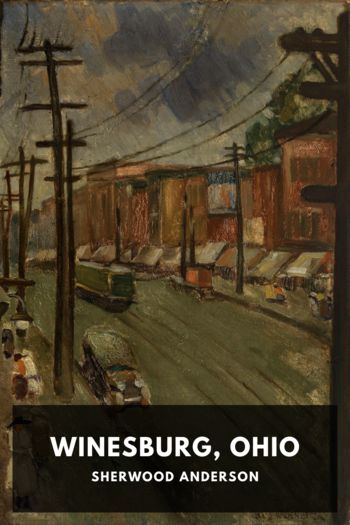The Alex King Series, A BATEMAN [good books for high schoolers .TXT] 📗

- Author: A BATEMAN
Book online «The Alex King Series, A BATEMAN [good books for high schoolers .TXT] 📗». Author A BATEMAN
She nodded, her expression pale. “It is due to hit tomorrow night. In the early hours.”
“Will it be as bad as they say?”
“I expect it will be the worse this area has seen,” she said. “The weather forecasters are calling it a Polar Vortex. It will bring in colder air, and the chill factor will be unbelievable.”
“Are you staying here?” he asked.
“Oh, yes. This job is a live-in position,” she replied. “There are no houses up here; nobody lives for miles.”
“Nobody?”
She shrugged. “There are the Sami. They are the indigenous people of Lapland, tribal and nomadic. Like the Inuit of North America.”
“Where will they go?” Ramsay asked incredulously.
“Mister Huss, the owner of The Eagle’s Nest, is making the hotel available to anyone in need of shelter and sanctuary from the storm. He has put out the claim in regular broadcasts on shortwave radio and over social media.” She smiled. “Even people who live in huts and igloos have a cell phone! Probably get likes for posting a picture of them skinning a reindeer!” she paused, going quiet when she saw that Ramsay wasn’t sharing her humour. “Anyway, anyone in danger can come and use rooms he has put aside. The hotel is quiet, mainly because of the storm forecast, so there are many vacant rooms.”
“Interesting…” Ramsay mused. Security was going to be a nightmare. But the defector could walk right in without anybody realising. He nodded a thank you to the waitress and watched her leave, stopping to talk to the waiter who was hovering in the doorway to the lounge. He sipped his drink and decided he’d eaten enough. He would take a wander around the hotel, get a feel for the place. He had an hour or so free and decided to put it to use.
30
Russia
The wooden table was pitted and scuffed. The edges were uneven, and several hundred people had either carved or written their initials or names into it over the years. The dates ran back to the mid-eighties, when the first phase of the hydroelectric station was opened. And although the facility had been expanded and upgraded, the last of which was the geothermal hot rock project, the room in which the table centred had not been decorated since. A perfunctory room where people, exhausted from their shifts in the power plant, sat in silence and ate a meagre meal, then returned to their shift. A half-hour break in a shift lasting fourteen hours. Seven days a week in the winter, six days a week in the summer. There was no union, no workers’ representative, but wages were substantially higher than the national average, so people stayed. There were no transport links in the winter, so no way out other than the ice road. Fifty-miles to the nearest town. No vehicles were allowed at the plant, so the walk would be suicide. In the summer, a few people left and made the walk to town. They never returned. Some thought it strange that they hadn’t shown up on social media, but others had their suspicions why.
There were secrets here. And secrets were a dangerous knowledge to hold.
Natalia Grekov ate her meagre meal of vegetable soup and bread, whilst reading a four-day old newspaper. The papers came in every week and with them, the occasional magazine. She liked the western fashion magazines the most. So glamorous, so out of reach. Russia had changed much in her lifetime, and at thirty-two, she could remember stricter times and a life with less opportunities than today. But this far north, this close to the edge of Russia’s shores and the Arctic Ocean, she had travelled to a time warp. She had been glad of the employment, and the money was better than she would have got elsewhere, but the lack of amenities, communication and feeling of isolation was taking its toll. She was worn-out and the hours they were expected to work made her work feel like a prison sentence. A true Russian gulag, but with heating and occasional use of a television and the internet. She was no fool, though. She knew her time online was monitored by the facility’s security. Like the old days of the KGB, they waited for people to slip up. People often did and were dealt with swiftly. Their employment terminated. But she was no fool. She knew these people, knew they wouldn’t slip from society. She had searched for them online, but not too thoroughly. She had always planned to leave after a year. That would give her enough funds to travel to Europe, seek employment and visas and a new life. She was a specialist in her field, and there were hydroelectric and thermoelectric concerns that would pay a fortune for her expertise. But the years had passed, and she was now five-years in and knew that she was a lost cause. She had seen too much. She didn’t even bother requesting leave anymore. Not since she had stumbled into the lower sector. A favour for a man she knew she would never see again. And she would never forget the sinking feeling that day. The knowledge she had sealed her own fate. They would never let her go now.
And now the lifeline.
The message had come to her by a roundabout way. A mutual friend had been quoted, things written that only he could have known. The Northern supply route was now solid ice and the icebreakers were having trouble carving a route through. Her last message had come just after Christmas. There had been little in the way of supplies since then. Such was the location and poor infrastructure surrounding the plant, that resupply was taken from the port of Koll and transported on the ice road. Far easier than bringing it in by road from the south. Norway’s infrastructure





Comments (0)